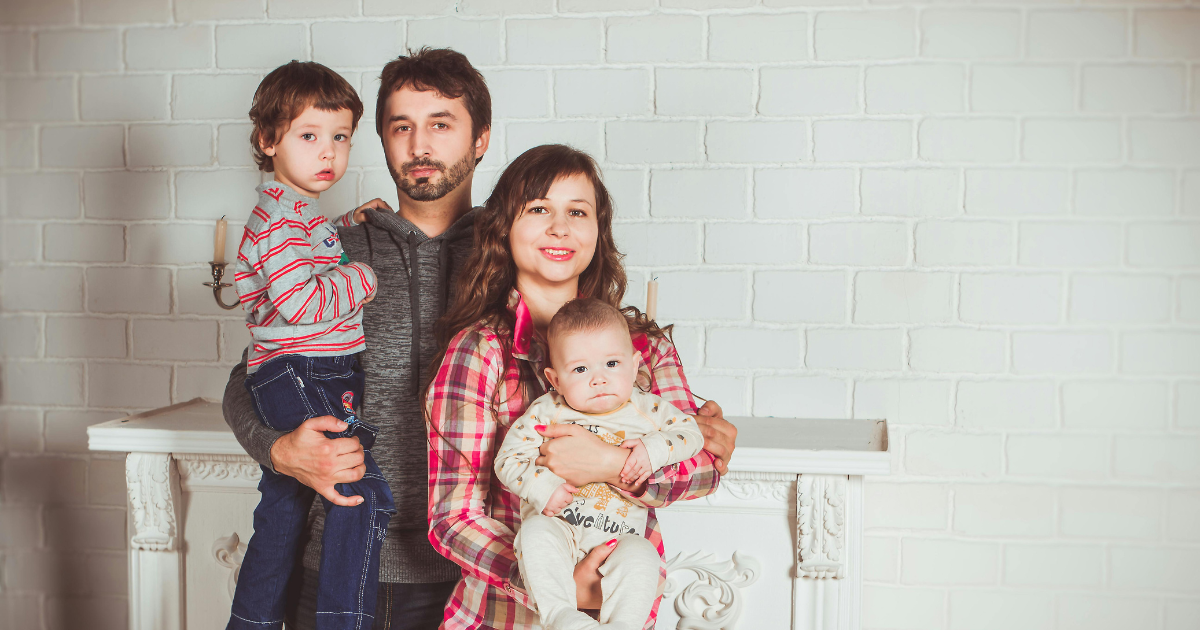Although the birth of a child is often described as the happiest thing that can happen in a person’s life, it does not mean the struggles of a parent whether they raise the kid alone or with the full support of a partner should be disregarded. The most common mental health challenges faced by parents include, but are not limited to, depression, post-traumatic stress disorder (PTSD), and in some cases, violent behavior.
We are going to introduce you to the concept of mental health in parenting, explain what signs you should pay attention to when suspecting parental burnout, and underline the importance of external support and therapy for any parent who needs support.
Understanding the Impact of Parental Mental Health on Children
There is strong evidence to suggest that parents who do not get any treatment for their mental health issues or those people who prefer to admit they struggle with parenting and other circumstances related to their fatherhood or motherhood have higher chances of harming their own children’s emotional development. It is clear that a parent who chooses to stay silent about their problems in order to have peace at home will have a child who will follow their lead and also avoid sharing any mental struggles they go through.
The situation is even more complicated when a person with a diagnosed mental health disorder such as depression becomes a parent and puts their own life on hold to take care of the baby – instead, it is vital to find a balance between managing your own parenting and mental well-being.
Signs of Mental Health Struggles in Parents
Stay in tune with your own feelings and emotions, take care of the partner you co-parent with, and be on the lookout for symptoms of mental distress in people you are close with if they recently became parents or underwent a life-changing event that could have affected their parenting. Here are just a few parenting challenges and mental health issues you should take seriously:
| Symptom | Description |
Fatigue | Exhaustion is something every parent experiences no matter how old they are and how old their children are – you will be tired of taking care of your kids. Make sure you do your best to plan for the future before the children are even born – consider saving money on babysitters or agreeing with your family on occasional breaks to let you practice self-care so that parental burnout does not affect you too harshly |
Resentment | It is rather common for parents to feel frustrated with their children – whether they are incapable of learning the simplest things or they disappoint you with their school grades, a parent can often feel they failed to raise their kid properly. Do not allow yourself to linger on this sentiment – learn to let go and remember the child who made a mistake does not deserve to feel your anger and frustration |
Anxiety | Many parents become too worried about their impact on the child and the child’s life outside of their control – for instance, you may feel on edge the entire time you allow someone else to babysit your kid or cannot concentrate on your own affairs because you think something bad is inevitably going to happen to your children |
The Benefits of Prioritizing Mental Health for Parents
Mental health in parenting is of paramount significance – below you can see the reasons to take care of yourself as well as you take care of your children:
- You are the best role model for your child especially when they are not yet going to school and interacting with the world at large. They learn how to act and react by looking at you and your behavior – is it not the smartest strategy to show them how a well-rounded, smart, capable adult acts? While they will end up making their own choices and decisions that will bring them to their own path, the best gift you can give them is to raise them as well-socialized, confident, and creative as possible.

- It is scientifically proven that children are more at risk of developing various mental health disorders when their parents have mental health issues they fail to resolve for any reason. While mental illnesses are not infectious in the conventional sense, you can easily pass your anxiety and stress to children who are very impressionable. Make sure you acknowledge the importance of mental health for parents and take care of yourself to prevent ever feeling guilty about your children’s mental state in the future.
- You will improve your chances to have a close relationship with your child when they grow up. Naturally, they live in your house and depend on you – it is not up to them to decide where they are and who to be in contact with; however, a person who had a healthy relationship with a parent who found balance between their own mental wellness and the well-being of the child is more likely to be friends with their parent when both of them are adults.
Practical Tips for Maintaining Mental Health as a Parent
| Advice | Description |
| Have Honest Communication With Your Children | While you do not have to disclose every detail to your kid – and many things you may go through are definitely not age-appropriate – do not lie to them either. Have healthy boundaries, be open and vulnerable in their presence, show them your trust and expect them to trust you in return |
| Do Not Compare Yourself With Others | Every parental experience is unique, and it is crucial for any parent – especially a person who became one recently – to avoid comparisons with others. It may be discouraging to see other parents seemingly dealing with various challenges better than you but remember that not many individuals share their failures and shortcomings as well as focus on your own journey |
| Remember Your Own Needs | It is natural for a parent to prioritize their child; however, neglecting your own feelings and needs will do you no good – in the long run in particular. You will notice a positive change in your relationship with a child as soon as you start giving serious consideration to your own mental wellness – both of you can benefit from you being in control of your mind |
| Seek Therapy | If you are looking for a more fulfilling parenting experience, therapy can be the solution. There is a stigma surrounding therapy, and you may be afraid to receive judgment from others – as if by helping yourself, you are not doing well enough as a parent. Do not let this misconception stop you from enlisting the support of a therapist that will benefit both you and your kids |
Resources and Support for Parents’ Mental Health
Traditionally, one of the biggest sources of mental health support for parents is their inner circle – consider yourself lucky if your family and friends are happy to help you with the child, especially during the first months of their life. Nonetheless, not every parent has an opportunity to call a relative or friend to take a break or even go to a store. If you find yourself unable to cope with the hardships of parenthood, reach out to other people for support.

There are numerous helplines and therapy services that offer help to people experiencing both the joys and challenges of parenting – if you cannot free an hour or two to drive for an appointment with a therapist, it is no big deal; these days you can access therapy from the comfort of your own home. Moreover, certain therapists can chat with you instead of arranging a video call to further accommodate your needs. The bottom line is – do not hesitate to ask for help when you know you need it.
A Healthier Parent for a Happier Family
Once you are a parent, you are responsible for another human being who depends on you in everything, and mental health is no exception. Even if you are doing a great job socializing your kid and ensuring they lack for nothing emotionally, your own struggles will be noticed – children happen to be very perceptive especially if it concerns their parents.
Remember that your own psychological health will have a direct impact on the mental state of your child and strike a balance that will help your family grow and blossom together.
FAQs
- Is it important to take care of your mental well-being once you become a parent?
Yes – instead of putting your feelings on the back burner, connect with your inner self since one can argue your mental health matters even more now that there is a child looking up to you and mimicking good and bad manifestations of your behavior.
- What are the symptoms of mental health struggles a parent may exhibit?
There are different ways parents struggle – every parenting journey is unique in good and bad ways; make sure you look out for anxiety, emotional detachment, fatigue, and irritability.
- Can I pass depression to my kids?
While some doctors and scientists insist there is a large genetic factor at play, nurture beats nature – as long as you are able to shield your child from harm and recover or at the very least manage the symptoms of your own mental illness, they will have a happy and fulfilling life.
- How do I take care of my mental health as a parent?
Do not put your life on hold completely no matter how challenging parenting is. Come up with a proper sleep routine, spend time with your friends, schedule activities that make you happy without involving a child in them, and keep a positive outlook on your life.
- Can therapy help me to be a better parent?
If necessary, seek therapy – some individuals have it harder than others when it comes to juggling their own well-being, parenthood, relationship with a partner, and professional obligations. Counseling will give you space to address your concerns and know what you have to do to stay on track.






